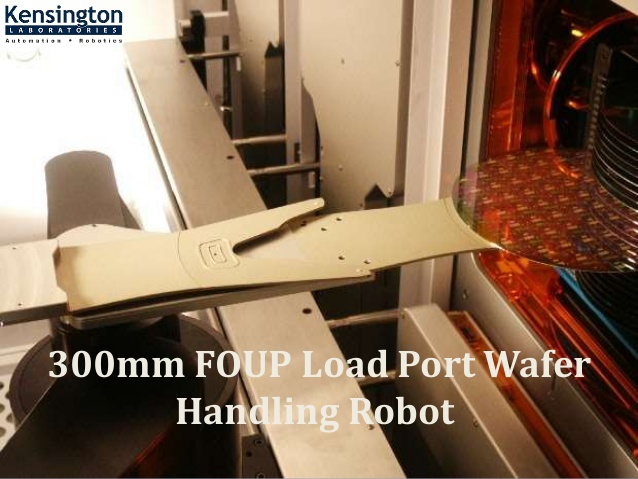Wafer Handling Automation Deep Dive: How EFEMs Optimize Semiconductor Manufacturing
In the complex world of semiconductor manufacturing, where efficiency and precision are paramount, automation is essential. The EFEM (Equipment Front End Module), an unsung hero that masterfully controls the smooth transportation and processing of silicon wafers, is at the center of this automation.
In this in-depth analysis, we'll examine the importance of EFEMs, how they improve wafer handling, and their crucial role in the semiconductor industry.
EFEM: Backbone of Wafer Handling Automation
The Equipment Front End Module (EFEM) serves as the choreographer in the complicated ballet of semiconductor manufacture, in which silicon wafers go through transformational procedures. This advanced robotic system serves as the foundation of wafer handling automation, ensuring that wafers travel seamlessly between processing equipment and storage units.
EFEMs use robotic arms, customized carriers, and complex systems to transfer wafers quickly and precisely, reducing the need for human interaction and the danger of contamination. With sophisticated features like vacuum environments and particle filters, EFEMs meet the strict cleanliness standards required in semiconductor production.
Furthermore, their data tracking capabilities offer useful insights into industrial yields and quality control. EFEMs' versatility and flexibility make them vital in the ever-changing world of semiconductor technology, where innovation and efficiency are critical.
Key Functions and Advantages of EFEMs
Equipment Front End Modules (EFEMs) are the workhorses of wafer handling automation in semiconductor manufacturing. They perform several crucial functions, providing numerous advantages that optimize the entire production process.
Wafer Transport:
EFEMs employ robotic arms and specialized mechanisms to swiftly and accurately move wafers between processing tools, storage, and inspection stations. This minimizes human handling, reducing contamination risk and increasing throughput.
Process Integration:
Seamlessly interfacing with various processing equipment, EFEMs ensure a smooth, continuous flow of wafers, optimizing cycle times and minimizing bottlenecks.
Contamination Control:
EFEMs are equipped with features like vacuum environments, particle filters, and specialized materials to maintain the ultra-clean conditions required in semiconductor fabrication.
Data Tracking & Traceability:
Sensors and software in EFEMs trace each wafer's path and processing history, giving useful information for yield analysis, process optimization, and quality control.
Flexibility & Adaptability:
EFEMs are intended to accept a wide range of wafer sizes and kinds, as well as varying process requirements, making them flexible to changing technologies and production demands.
EFEMs are critical for efficient and high-quality wafer handling automation in the semiconductor industry, resulting in increased throughput, higher yield, and better quality control.
EFEM Optimization: Boosting Efficiency and Yield
In this semiconductor manufacturing sector, where output maximization is critical, EFEM (Equipment Front End Module) optimization is critical. Manufacturers may increase yield and efficiency significantly by optimizing software algorithms, maintenance protocols, and EFEM setups.
Increased Throughput:
Streamlining wafer movement within the EFEM, minimizing downtime through efficient configuration, and optimizing process flows significantly contribute to a fab's overall production output.
Improved Yield:
Efficient wafer handling automation reduces the risk of defects and contamination, leading to a higher percentage of usable chips (yield). This translates directly to cost savings and profitability.
Enhanced Quality Control:
EFEMs' data tracking capabilities enable real-time monitoring of wafer quality and process parameters. Early detection of anomalies and corrective actions ensure consistent product quality, further boosting yield.
The Future of EFEMs: Smart Automation and Beyond
As semiconductor technology continues to evolve, the role of EFEMs (Equipment Front End Modules) in wafer handling automation is poised for transformation. The future holds exciting possibilities:
Smart EFEMs:
AI and ML can help EFEMs make informed decisions, optimize operations in real-time, and anticipate possible disruptions before they affect production.
Predictive Maintenance:
Predictive maintenance using advanced sensors and data analytics may discover component wear and tear before failure, reducing downtime and increasing machine uptime.
Advanced Robotics:
Advancements in EFEM robotic systems will enable difficult wafer-handling tasks for future chip technologies.
These advances in wafer handling automation will not only improve productivity and yield, but will also open the way for the creation of smaller, quicker, and more powerful processors, eventually spurring innovation across a wide range of sectors.
Conclusion
EFEMs are the underappreciated heroes of wafer-handling automation in semiconductor production. Their ability to optimize wafer transportation, interact with processing equipment, manage contamination, and track data is critical to attaining high throughput, yield, and quality.
As semiconductor technology improves, the function of EFEMs will become increasingly important, and their optimization will remain a major focus for semiconductor producers throughout the world.
.jpg)


Comments
Post a Comment